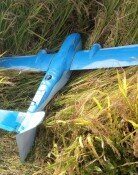Hidden heroes who’ve done their job for 100 days
Hidden heroes who’ve done their job for 100 days
Posted April. 27, 2020 07:36,
Updated April. 27, 2020 07:36
Monday is the 100th day since South Korea had the first COVID-19 patient. Since a traveler from China was confirmed with the virus on January 20, South Korea had 10,728 confirmed cases and 242 deaths until Saturday. The death rate stands at 2.26 percent. The number of new cases per day decreased to around 10 from over 800. More than 40 countries around the world are asking South Korea to provide know-hows in quarantine.
The nation’s quarantine is an achievement made by quarantine authorities as well as healthcare workers and citizens. There are numerous “hidden heroes” who played their role in various fields including doctors, nurses and hospital staff. Quarantine officers at airports and civil servants at health centers never had a luxury of working from home or social distancing, but they said they just did their job. “Honestly, I was scared when I had to separate hundreds of used masks from garbage every day,” said a street cleaner. Mailmen also had to deliver more posts than before, wearing a mask and climbing up hundreds of stairs. Numerous heroes of our society silently carried out their job and fought against the invisible enemy.
Moreover, all citizens participated in social distancing and encouraged each other even in hard times including office workers and small business owners whose income was severely reduced, students who couldn’t go to school and parents who had to take care of their children at home.
But it is concerning to see their patience is wearing thin these days. Jeju Island, East Sea and Mountain Sorak were crowded with travelers over the weekend, the first one since the government announced detailed guidelines of social distancing. Publicly used businesses such as supermarkets were packed with shoppers, and two-meter distancing rule was not kept. A teenager who is soon to join the army was confirmed with the virus after visiting multiple bars and clubs in Busan, which once again highlights the risk of cluster infection. Many warn that the upcoming long weekend in May would determine the result of South Korea’s quarantine. Carelessness is the biggest enemy in quarantine.
Experts warn that the virus has a high possibility of resurgence due to its fast-spreading and irregular characteristics. One-third of mild cases are in long-term care longer than four weeks, and there are more than 260 cases reconfirmed with the virus. It is assumed that there would be a number of patients in an incubation period as the virus spreads extremely fast. In the end, the only way to prevent the virus from spreading again is to keep distance until medicines and vaccines are developed.



![‘건강 지킴이’ 당근, 효능 높이는 섭취법[정세연의 음식처방]](https://dimg.donga.com/c/138/175/90/1/wps/NEWS/IMAGE/2026/01/18/133181291.1.jpg)



